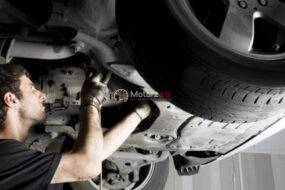Gas Cap Issues Effects of a loose or faulty gas cap. In the intricate dance of automotive components, the humble gas cap might seem like a mere accessory—a twist-on, twist-off affair that keeps fuel where it belongs. However, appearances can be deceiving, and the repercussions of neglecting this seemingly minor part of your vehicle can be surprisingly significant. In this exploration, we delve into the world of Oil and gas emissions cap, shedding light on the effects of a loose or faulty seal.
1. Fuel Evaporation and Environmental Impact:
A loose Gas Cap Issues Effects is akin to leaving a door ajar in a drafty house—it invites trouble. One immediate consequence is increased fuel evaporation. A secure gas cap creates an airtight seal, preventing fuel vapors from escaping into the atmosphere. When the cap is loose or faulty, these vapors slip away, contributing to air pollution and environmental degradation. This seemingly small oversight has far-reaching consequences, aligning with the global pursuit of cleaner, greener practices.
2. Decreased Fuel Efficiency:
Beyond environmental concerns, a loose Gas Cap Issues can take a toll on your wallet. The evaporating fuel represents money literally going up in smoke. A compromised seal leads to a decrease in fuel efficiency, as the volatile components of gasoline escape into the air rather than being utilized by the engine. Over time, this can translate into a noticeable reduction in miles per gallon, impacting both your finances and the overall efficiency of your vehicle.
3. Check Engine Light Woes:
Modern vehicles are equipped with sophisticated onboard diagnostics systems, and they don’t take kindly to a loose gas cap. A common consequence is the illumination of the dreaded “Check Engine” light on your dashboard. While it may seem like a minor annoyance, this warning should not be ignored. The onboard computer is signaling that something is amiss, and in many cases, a loose gas cap is the culprit. Addressing this issue promptly can prevent more serious and costly problems down the road.
4. Emissions Testing Headaches:
For those living in regions with stringent emissions testing requirements, a loose or faulty gas cap can turn what should be a routine inspection into a headache. A failed emissions test not only leads to potential fines but can also result in the inability to legally operate your vehicle until the issue is resolved. In this context, the gas cap transforms from a mundane component to a gatekeeper determining your vehicle’s compliance with environmental standards.
5. Potential Damage to Evaporative Emission System:
The gas cap is a linchpin in the evaporative emission control system, a crucial component designed to capture and contain fuel vapors. A loose or faulty cap disrupts this delicate balance, potentially leading to damage within the system. Over time, this can result in the need for expensive repairs or replacements, underscoring the importance of regular gas cap maintenance.
6. Water Contamination in Fuel Tank:
A loose gas cap doesn’t just allow vapors to escape; it also opens the door to unwelcome guests, namely water. Rainwater or moisture in the air can find its way into the fuel tank, compromising the quality of the gasoline. This water contamination can lead to engine problems, corrosion, and reduced fuel efficiency. The seemingly innocuous gas cap, when neglected, becomes a conduit for potential damage.
7. Safety Concerns:
While not as immediately dramatic as a malfunctioning brake system or a failing transmission, gas cap issues can pose safety concerns. A loose cap increases the risk of fuel leakage, creating a hazardous situation, especially in the presence of ignition sources. Prioritizing the integrity of the gas cap is thus a matter of both environmental responsibility and personal safety.
conclusion
In conclusion, the Gas Cap Issues Effects often overlooked in the grand scheme of automotive components, plays a pivotal role in the efficient and eco-friendly operation of a vehicle. Its impact extends beyond the confines of the fuel tank, reaching into environmental, financial, and safety realms. Regular inspections, prompt repairs, and a proactive approach to gas cap maintenance are not merely good practices—they are essential steps toward a smoother, more responsible driving experience. So, the next time you reach for the gas pump, spare a moment to ensure that twist is tight and secure, for in that simple action, you safeguard not only your vehicle but also the environment and your hard-earned dollars.





